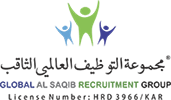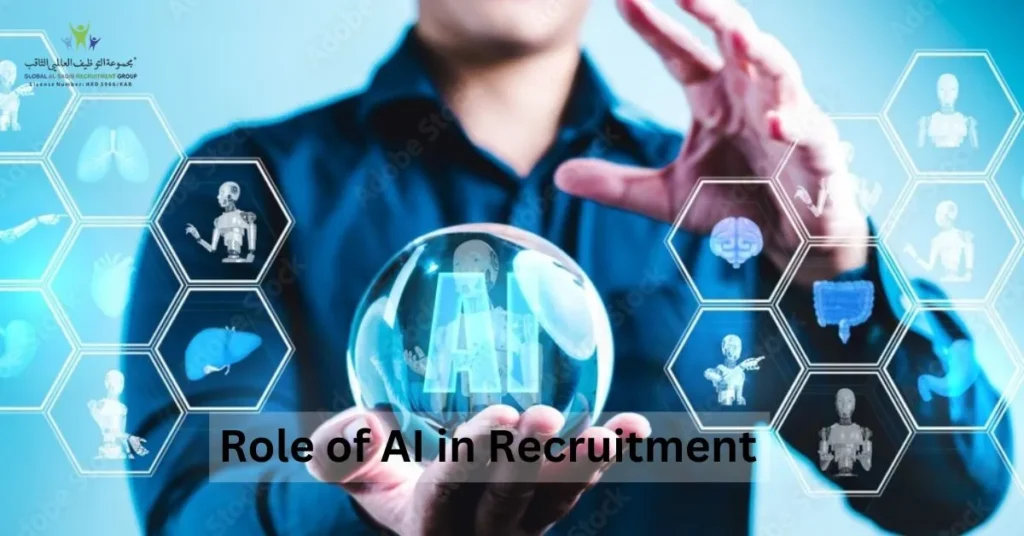Artificial intelligence (AI) is quickly revolutionizing sectors all around, including Recruitment. It is emerging as a vital component of contemporary employment policies. The role of AI in recruitment helps companies and job seekers both streamline procedures and enhance results. Recruitment agencies in Pakistan are using artificial intelligence-driven technologies to remain competitive and produce quicker, more effective results. This blog investigates how artificial intelligence is changing hiring, the advantages it offers for both sides, and how Pakistani agencies may use this technology.
Understanding role AI in Recruitment
Artificial intelligence, or AI, is the replication of human intellect in machines that lets them enabling to perform tasks that typically involve human intelligence. AI is used in hiring to automatically handle Routine tasks such candidate evaluations, interview scheduling, and resume screening. To maximize hiring procedures,
Recruitment agencies in Pakistan are using artificial intelligence technologies such predictive analytics, chatbots, and machine learning more and more.
Real-time, big dataset analysis by artificial intelligence systems generates data-driven suggestions that enable agencies to make quicker and more informed decisions. Recruiters now have more time to concentrate on strategic elements of talent acquisition. As artificial intelligence is driving more accurate, efficient, and simplified hiring procedures.
Benefits of AI for Employers

1. Efficiency in Hiring
By automating time-consuming tasks like candidate shortlisting and resume sorting, artificial intelligence improves recruiting effectiveness. Nowadays, recruitment agencies in Pakistan can save time to hire by cutting the time spent on manual screenings, facilitating faster placements. In sectors where specialist knowledge is highly sought for and where hiring delays could cost businesses greatly, this is especially important.
2. Data-Driven Decisions
analyzing enormous volumes of candidate data gives artificial intelligence practical insights. To project applicant fit, algorithms evaluate resumes, social media profiles, and other data sources. By making decisions based on data rather than instinctive judgments, artificial intelligence helps recruitment companies guarantee equitable, objective hiring methods. For businesses depending on Pakistani recruitment services, this translates into better candidates and reduced turnover rates.
3. Cost Savings
Direct cost reductions for companies follow from the automation of hiring task. By lowering operating costs related with human mistake and administrative overheads, artificial intelligence lessens the demand for manual labor. Role of AI in Recruitment in Pakistan can provide companies more reasonably priced solutions, therefore enhancing both profitability and service quality.
Benefits of AI for Job Seekers
1. Personalized Job Matches
Personalized job matching among artificial intelligence is one of its main advantages for job seekers. AI systems examine a candidate’s interests, background, and abilities to suggest employment that fits their career path. This not only increases the possibility of job seekers discovering roles that fit them but also helps Pakistani recruiting firms since individuals are more likely to remain in roles appropriate for them.
2. Enhanced Application Experience
AI streamlines application for jobs. Candidates are guided through applications by chatbots and virtual assistants, who also instantly answer inquiries and expedite the submitting process. For job searchers, this enhances user-friendliness and improves engagement, therefore raising the probability of successful applications.
3. Accessibility
AI technologies also enable more employment accessibility for a variety of applicants. Recruitment companies in Pakistan may guarantee that prejudices are reduced and that all qualified individuals, from all backgrounds, have equal chances to be taken under consideration by reviewing resumes and applications using artificial intelligence. This promotes a more inclusive employment scene.
Ethical Considerations
1. Bias in AI
The role of AI in recruitment has numerous advantages; if the data utilized to teach these systems is biased, it may occasionally reinforce prejudices. For example, the algorithm might copy racial or gender prejudices in candidate selection if artificial intelligence systems are taught on past data reflecting those prejudices. Recruitment agencies have to be alert in making sure the data they employ is varied and free from bias, therefore supporting fair and productive hiring practices.
2. Transparency
using artificial intelligence in recruiting calls for openness. Employers and recruiting companies should be open about how artificial intelligence is applied during the hiring process and guarantee candidates are aware of how their data is examined. A clear strategy helps candidates and companies to build trust, therefore promoting a more favorable hiring process.
Future Trends in AI Recruitment
As artificial intelligence develops, it will become ever more important in hiring. While developments in machine learning will make candidate matching increasingly more accurate, predictive analytics, for instance, will let businesses predict candidate performance based on past data. AI might also combine with developing technologies like virtual and augmented reality to provide immersive job interviews or skill assessments going forward.
Those recruitment companies that keep ahead of these trends will have a competitive edge. They will be able to provide employers and job seekers faster, more accurate, and more all-encompassing recruitment options.
Conclusion
Artificial intelligence is transforming how businesses and recruiting agencies handle hiring. The role of AI in recruitment is now a key instrument in modern hiring since it increases productivity, lowers expenses, and offers job seekers a more tailored experience.
Both companies and job seekers should accept the role of AI in recruitment to streamline hiring procedures and locate better employment. The increasing importance of artificial intelligence in recruiting will present new opportunities for businesses and applicants to gain faster, more efficient hiring solutions.
Frequently Asked Questions (FAQ’s)
How does AI help recruitment agencies in Pakistan?
The role of AI in recruitment helps agencies to work more efficiently by reducing the time spent on administrative tasks. AI automates various stages of recruitment, such as screening resumes, shortlisting candidates, and scheduling interviews.
Can AI replace human recruiters?
AI is not meant to replace human recruiters but rather to complement their work. While AI can automate repetitive tasks and analyze data, human recruiters are still needed for interpersonal skills, negotiations, and decision-making based on more nuanced factors.
How does AI ensure fair hiring practices?
Role of AI in Recruitment can help reduce human biases in hiring by analyzing candidates objectively based on data. However, it is important to ensure that the data used to train AI systems is free from biases, as biased data can lead to biased outcomes.
What are the key AI tools used in recruitment?
Some of the popular AI tools include resume screening software, chatbots for candidate engagement, and predictive analytics tools that assess candidate fit based on data patterns
How can AI help job seekers?
AI can recommend personalized job opportunities based on a candidate’s profile, making it easier for job seekers to find roles that align with their skills and career goals. AI-powered chatbots can also provide real-time assistance during the application process, improving the candidate experience.

